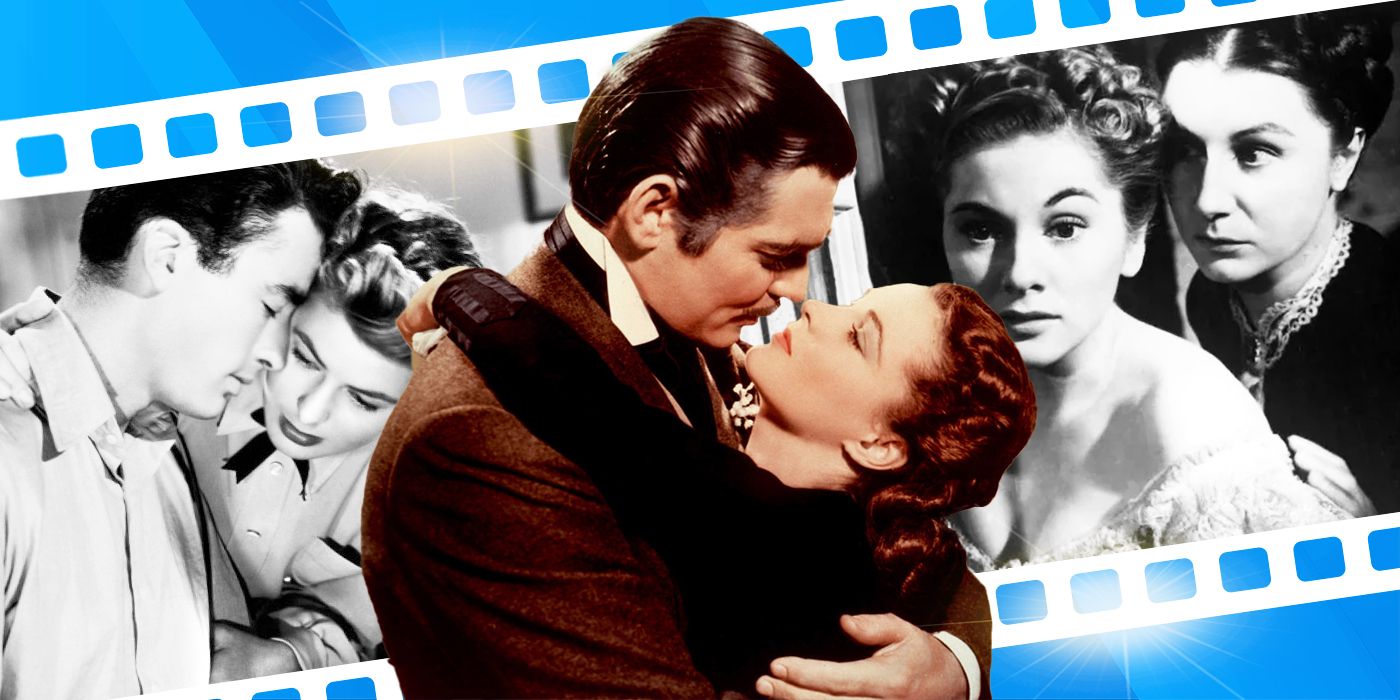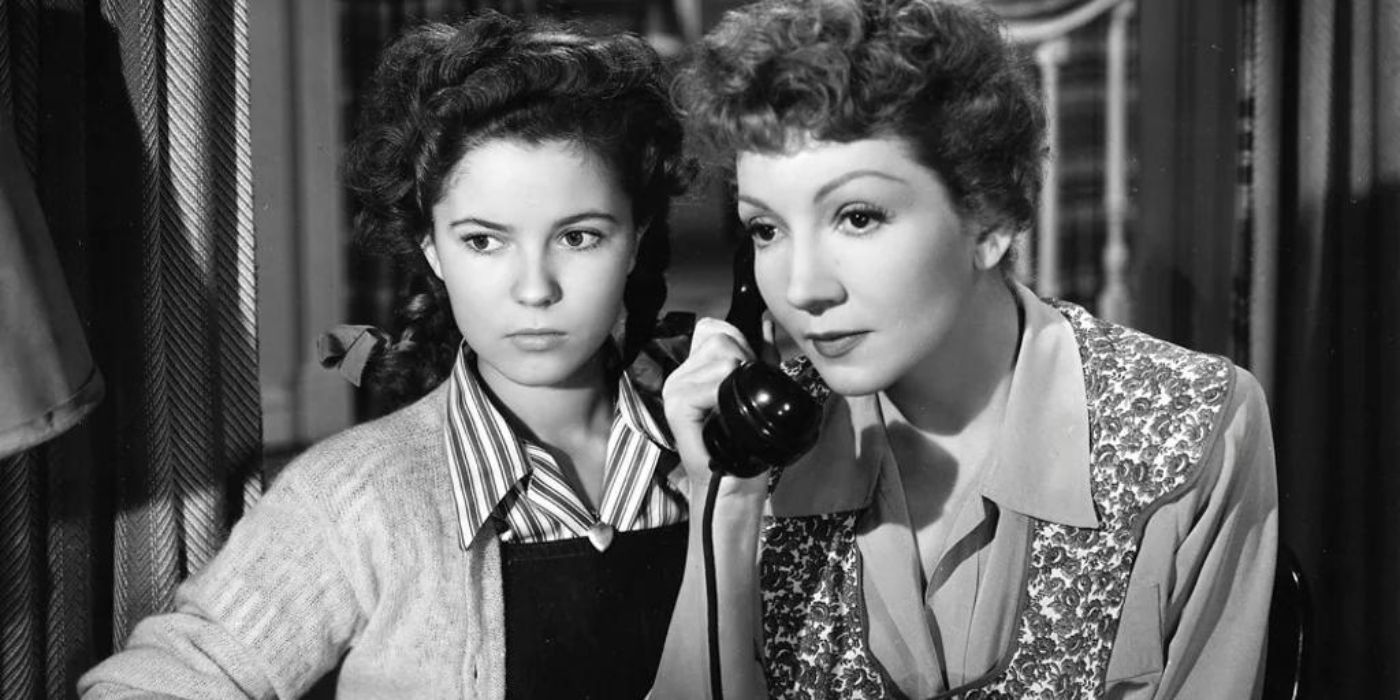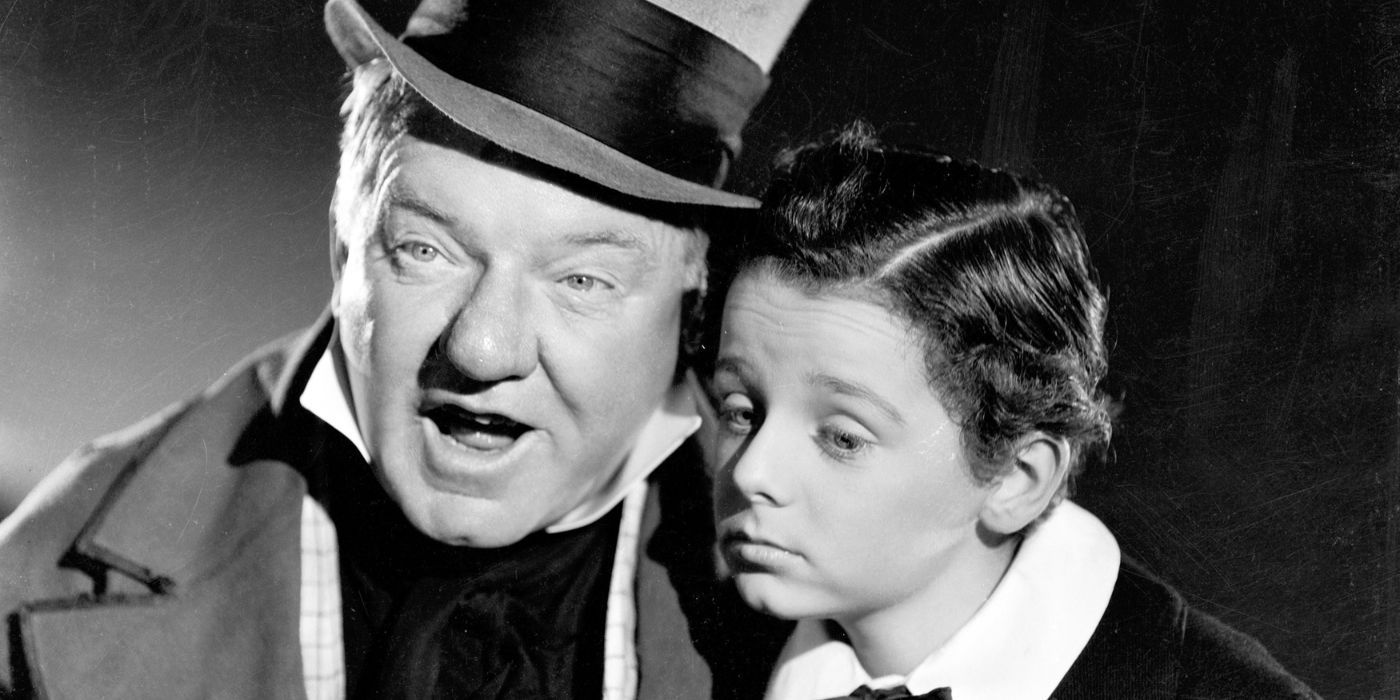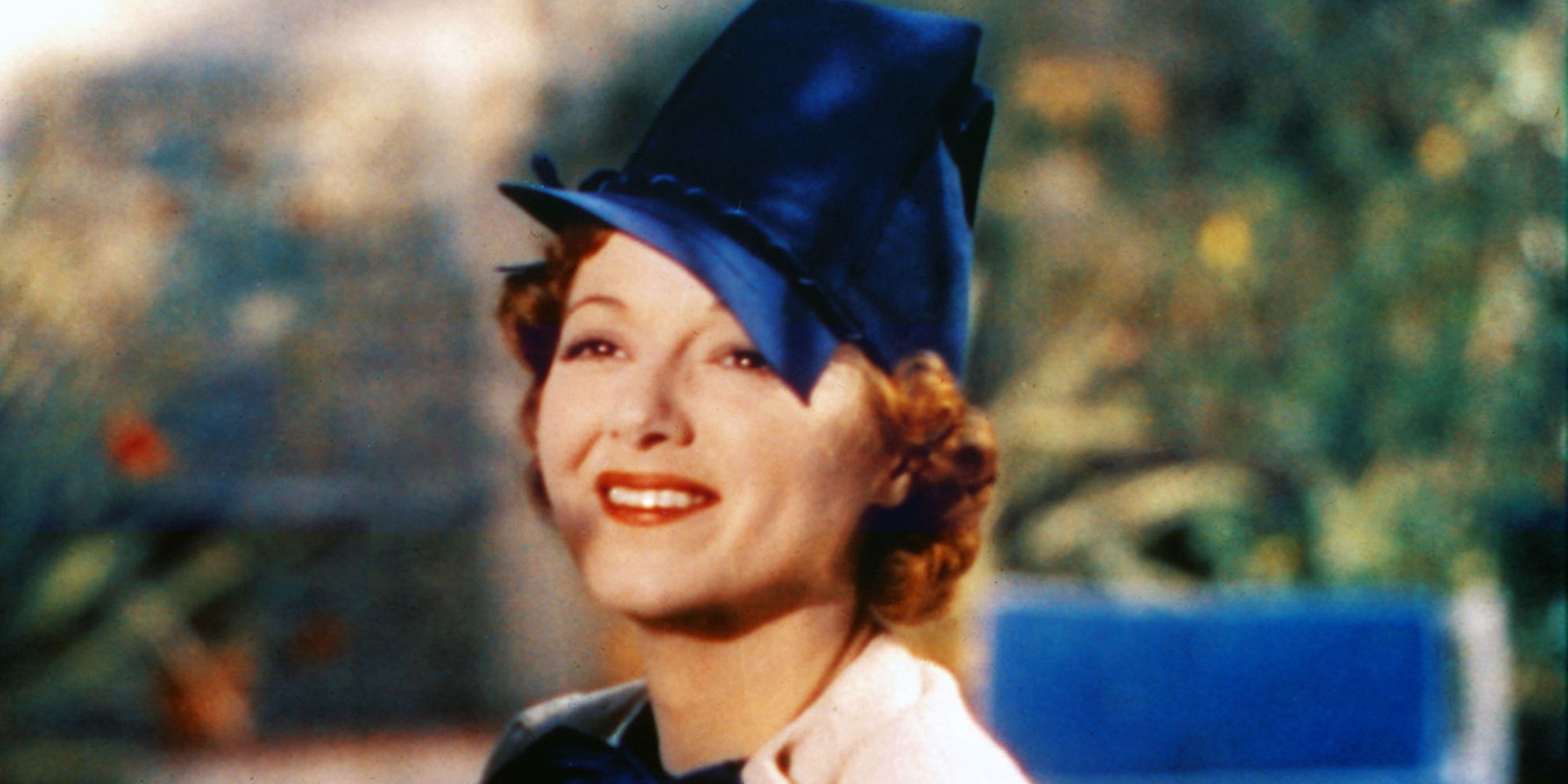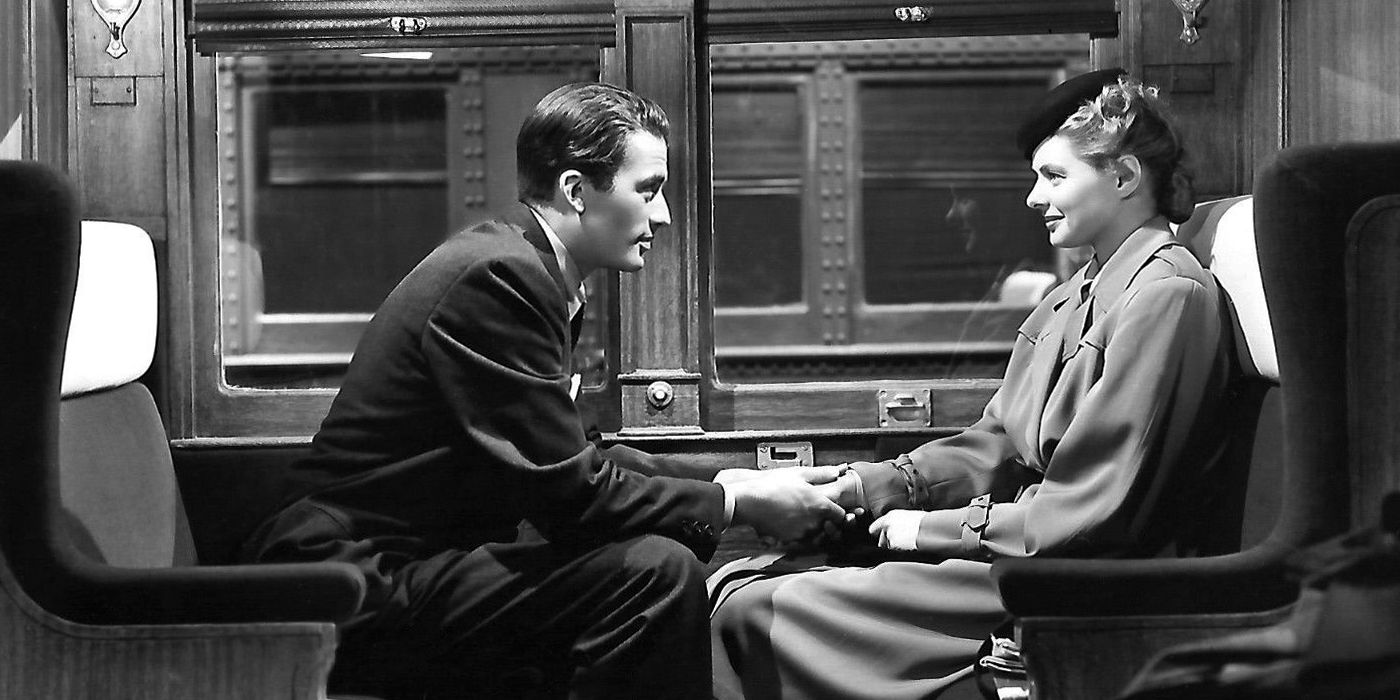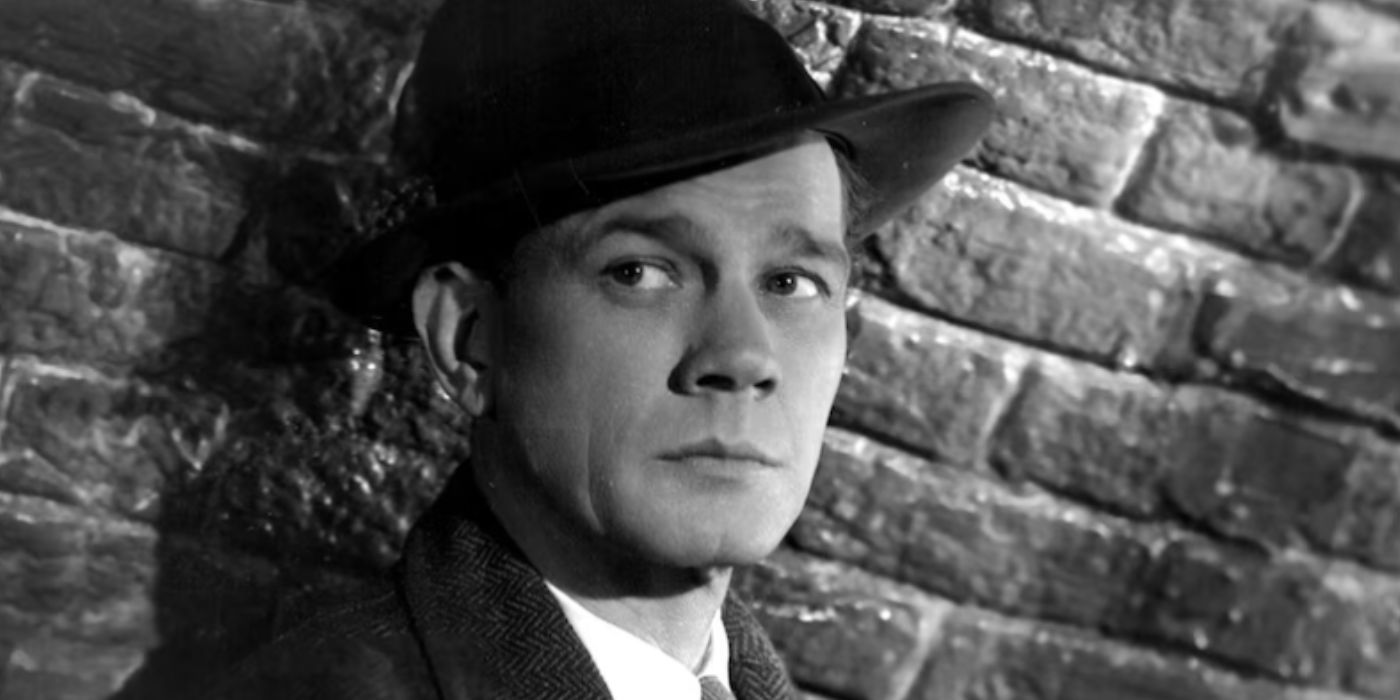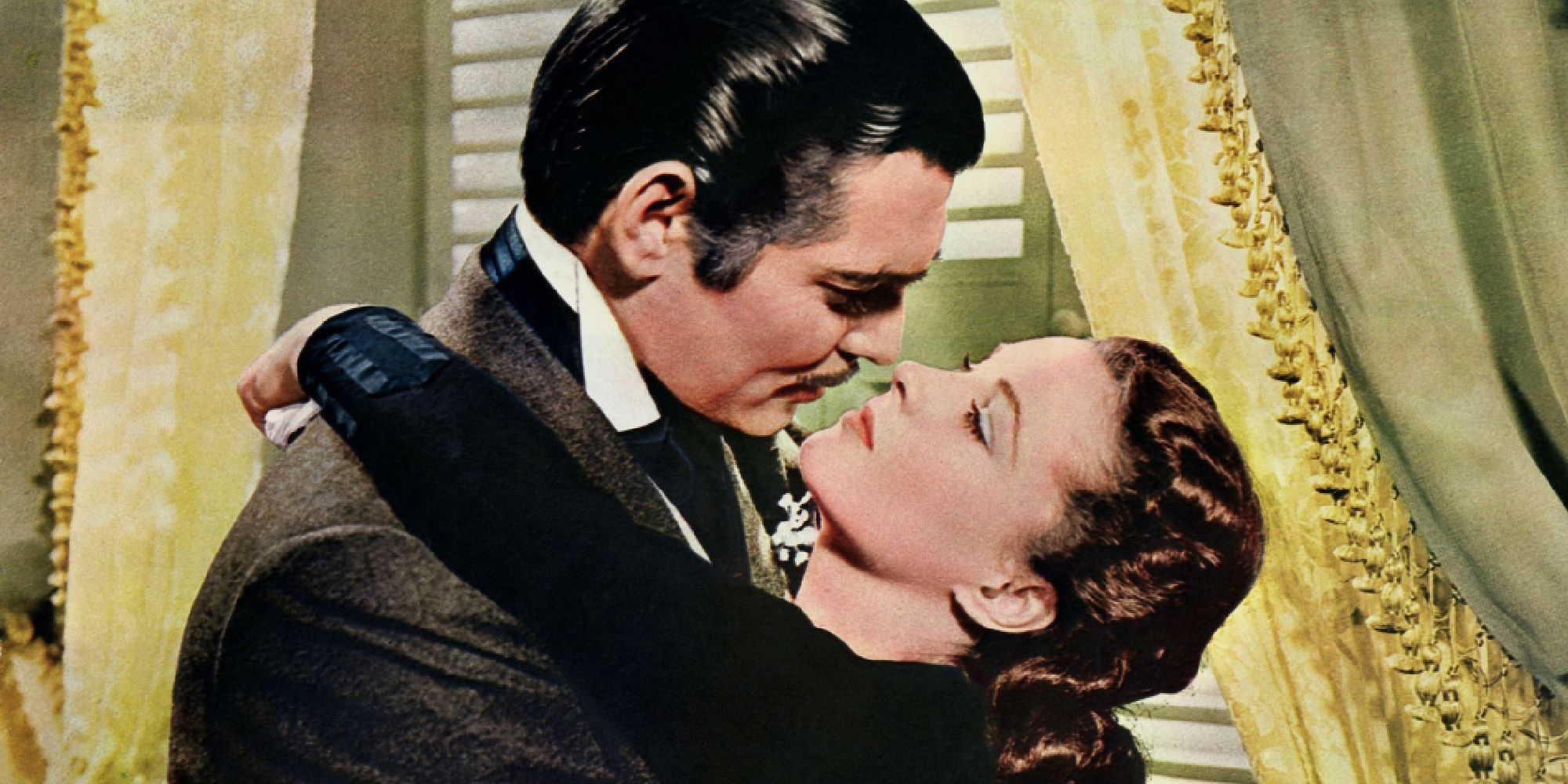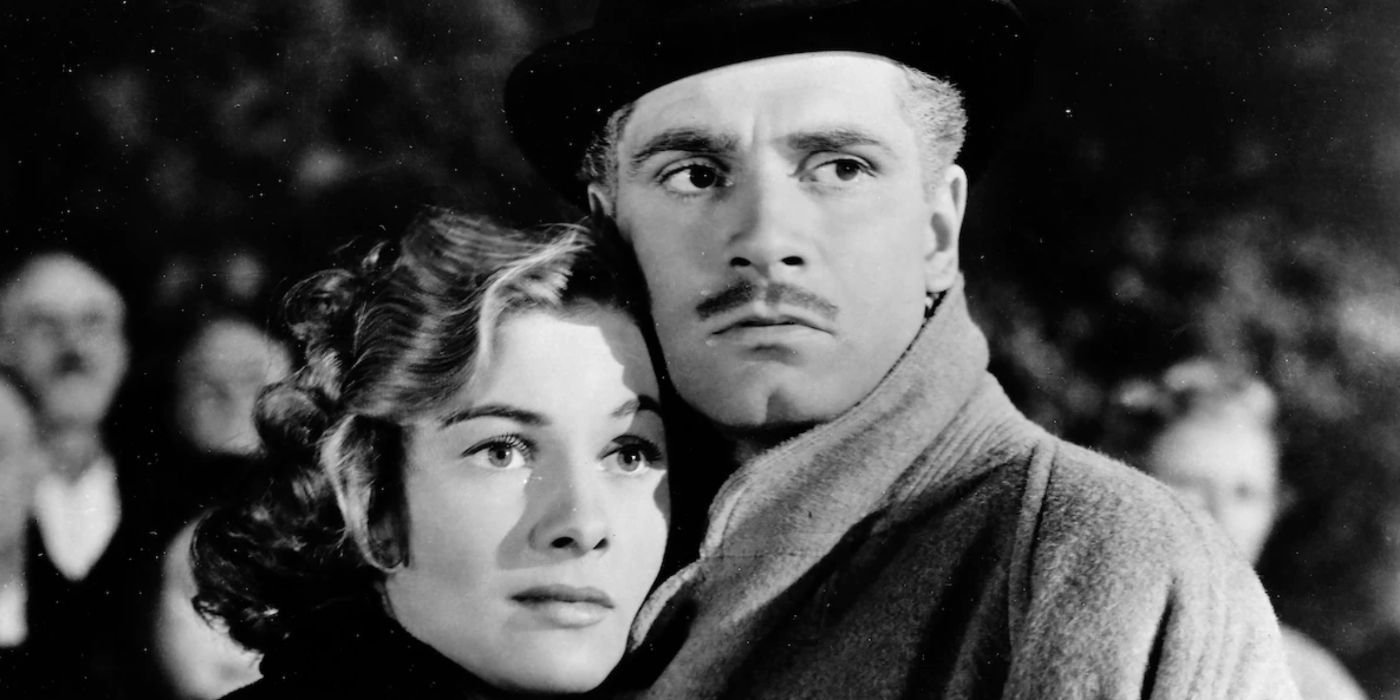David O. Selznick is widely considered by critics and audiences among the most prolific and recognizable producers from Hollywood's Golden Age. In a career spanning over thirty years, Selznick was behind some of classic Hollywood's most acclaimed films, winning back-to-back Oscars for Best Picture out of eight nominations.
Although he served major roles in several studios, notably heading RKO from 1931 to 1933, Selznick's greatest success came when he formed his own production company. Selznick would become one of Hollywood's first independent producers, crafting several films that earned him critical and commercial success and cemented his legacy as one of the greatest producers in entertainment history. These are among Selznick's finest efforts, enduring classics that have stood the test of time.
10 'Since You Went Away (1944)
Director: John Cromwell
John Cromwell directs Claudette Colbert, Joseph Cotten, Jennifer Jones, and Shirley Temple in the 1944 drama Since You Went Away. The plot centers on housewife Annie Hilton and her efforts to support her two daughters and keep her home afloat while her husband is away in World War II.
Since You Went Away is a classic drama meant to boost audiences' morale amid the ongoing war. It's safe, heartfelt, and shamelessly optimistic, things that were in short supply in 1944. O. Selznick produced a few war films during World War II, although he spent most of the conflict liquidating his production company, Selznick International Pictures, following his back-to-back Oscar wins. Still, Since You Went Away is a classic war drama and a worthy addition to the cinematic war effort of the mid-1940s.
9 'A Tale of Two Cities (1935)
Director: Jack Conway
Charles Dickens's classic novel A Tale of Two Cities has received a few big-screen adaptations, but Jack Conway's 1935 version is among the most well-known. Set before and during the French Revolution, the plot revolves around the complicated love triangle between a British lawyer, a French aristocrat, and his fiancée.
Historical and epic movies are usually acclaimed in Hollywood. A Tale of Two Cities was no exception, earning O. Selznick his third Best Picture nomination. Dickens's seminal novel is perfect for a big-screen adaptation, especially in the mid-1930s, when cinema was entering the era of large-scale productions and looking for literary classics to adapt. Conway's A Tale of Two Cities is sweeping and suitably epic, a worthy adaptation of Dickens' masterpiece that confirmed Selznick's ability to bring spectacle to life.
8 'David Copperfield' (1935)
Director: George Cukor
Selznick took another Dickens classic to the big screen with his 1935 adaptation of the seminal novel The Personal History, Adventures, Experience & Observation of David Copperfield the Younger. Directed by the iconic George Cukor, the film, simply titled David Copperfield, follows the title character, an orphan boy who experiences many adventures as he learns about life and love.
David Copperfield boasted stellar production values and visual spectacle, enough to compensate for the many things that got lost in translation between the page and the screen. The film earned Selznick his second Best Picture nomination and earned him a reputation as a consistent and admirable producer who could make magic happen. David Copperfield might not rank among Selznick's most memorable movies nowadays, but back then, it was a truly impressive achievement.
7 'Dinner at Eight (1933)
Director: George Cukor
George Cukor and Selznick collaborated in several pictures, but their 1933 pre-Code comedy Dinner at Eight might be their underrated masterpiece. An ensemble cast, including John Barrymore, Jean Harlow, and Lionel Barrymore, star in the story of an aristocratic dinner that descends into comedic chaos as secrets come out.
Dinner at Eight is among the best pre-Code comedies, thanks to Frances Marion and Joseph L. Mankiewicz's daring screenplay and the performances of an irreverent collection of actors. Selznick's eye for a box office hit was famous, easily making him among the top producers from the beginning of his career. However, he truly struck gold with Dinner at Eight, a subversive comedy that remains as refreshing and celebrated as it was when it first debuted.
6 'Intermezzo' (1939)
Director: Gregory Ratoff
The iconic Ingrid Bergman made her Hollywood debut opposite Leslie Howard in the 1939 romantic drama Intermezzo. The plot revolves around the forbidden romance between a married violinist and his young accompanist. It's a remake of the 1936 eponymous Swedish film also starring Bergman.
One of Selznick's greatest triumphs as a producer was bringing Ingrid Bergman to Hollywood. The producer had a remarkable eye for talent, and his discovery of Bergman proves it. The actress was an instant success and went on to star in numerous iconic films, a few produced by Selznick. Intermezzo is a heart-wrenching drama, the kind the classic Hollywood loved; however, it will always be remembered as the film that introduced Ingrid Bergman to English-speaking audiences.
5 'A Star Is Born (1937)
Director: William A. Wellman
Few stories are as timeless as A Star Is Born. The original 1937 film stars Janet Gaynor as Esther Blodgett, a young farm girl who enters a romance with famous actor Norman Maine. As her star rises, his career wanes, and their relationship suffers from his descent into alcoholism, leading to heartbreaking consequences.
A Star Is Born is one of Hollywood's greatest romantic tragedies, an enduring love story that continues to charm audiences. Its legacy is measured by the number of remakes it has spawned - to this day, there are four versions of A Star Is Born, each offering a unique take according to its time and place. The original remains a cinematic achievement, shot in glorious technicolor and providing audiences with a harrowing romance that left no dry eye in the house. A Star Is Born earned Selznick his fourth Oscar nomination, his last loss before claiming the gold.
4 'Spellbound' (1945)
Director: Alfred Hitchcock
Spellbound is among Alfred Hitchcock's best and most rewatchable movies. Ingrid Bergman stars as psychoanalyst Constance Petersen, who falls in love with the new head of the hospital where she works, played by Gregory Peck. Things get complicated when she discovers he suffers from dissociative amnesia and is potentially a murderer.
Following Selznick's Oscar win for Hitchcock's Rebecca, it was strange that the two didn't continue collaborating. However, Hitchcock eventually ventured into producing himself, wanting more control over his productions and producing some of his most seminal features as a result. Spellbound marked Selznick and Hitchcock's second collaboration, earning the former his last Best Picture nomination and confirming them as one of the greatest producer-director partnerships in classic Hollywood.
3 'The Third Man (1949)
Director: Carol Reed
Joseph Cotten was a regular performer in Selznick's productions. However, their greatest triumph is undoubtedly the 1949 film noir The Third Man, directed by Carol Reed and co-starring Alida Valli and Orson Welles. Set in post-war Vienna, the plot follows a newly-arrived American investigating his friend's mysterious death.
Selznick didn't venture too much into noir territory. The Third Man is a rare exception and proves the late producer should've explored the revered genre a lot more. It was also a co-production between Selznick, director Carol Reed, and director Alexander Korda. Although it received largely positive reviews upon its premiere, The Third Man, like many films from classic Hollywood, has only increased in standing over time and is now considered among the all-time best classic noir films in cinema.
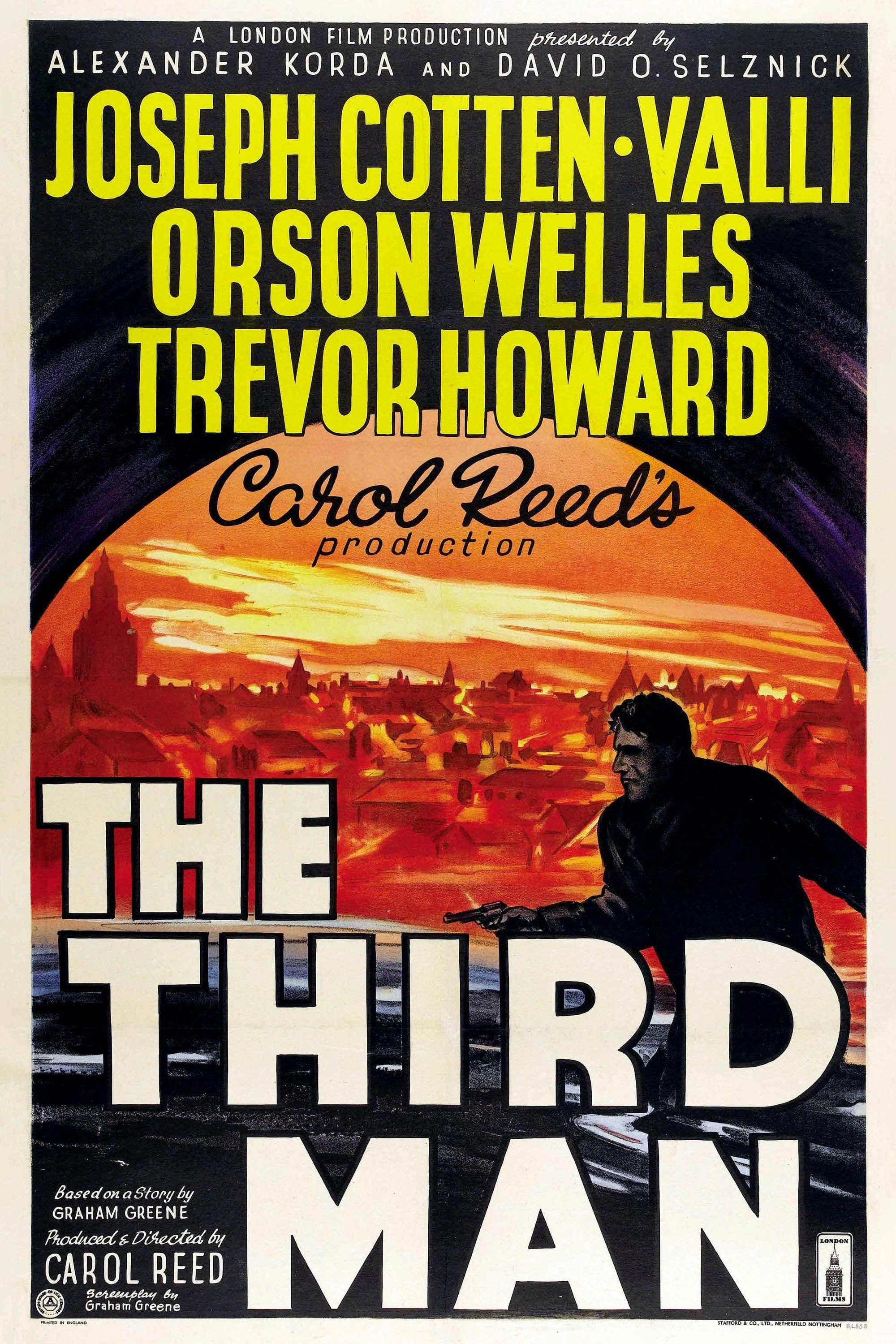
The Third Man
- Release Date
- February 1, 1950
- Cast
- Orson Welles , Joseph Cotten , Alida Valli , Trevor Howard , Paul Hörbiger
- Runtime
- 93 Minutes
2 'Gone with the Wind' (1939)
Director: Victor Fleming
Selznick bought the rights to Gone with the Wind a month after its publication. What followed was an extensive search for the perfect actress to play the iconic Scarlett O'Hara, a story so fascinating it merits its own Hollywood movie. By the time Gone with the Wind premiered, it was arguably the most highly-anticipated film of the year. Gone with the Wind broke every record, becoming the most successful film ever and holding the record for twenty-six years. To this day, it remains the highest-grossing film adjusted for inflation.
Selznick won his first Oscar for Best Picture, then called Outstanding Production, and became the overnight king of the major Hollywood producers. Gone with the Wind was a gigantic feather on Selznick's cap, delivering commercially and critically. According to the book The Complete Gone with Wind Trivia Book: The Movie and More, Selznick lobbied author Margaret Mitchell for a sequel; alas, the author died refusing the request.
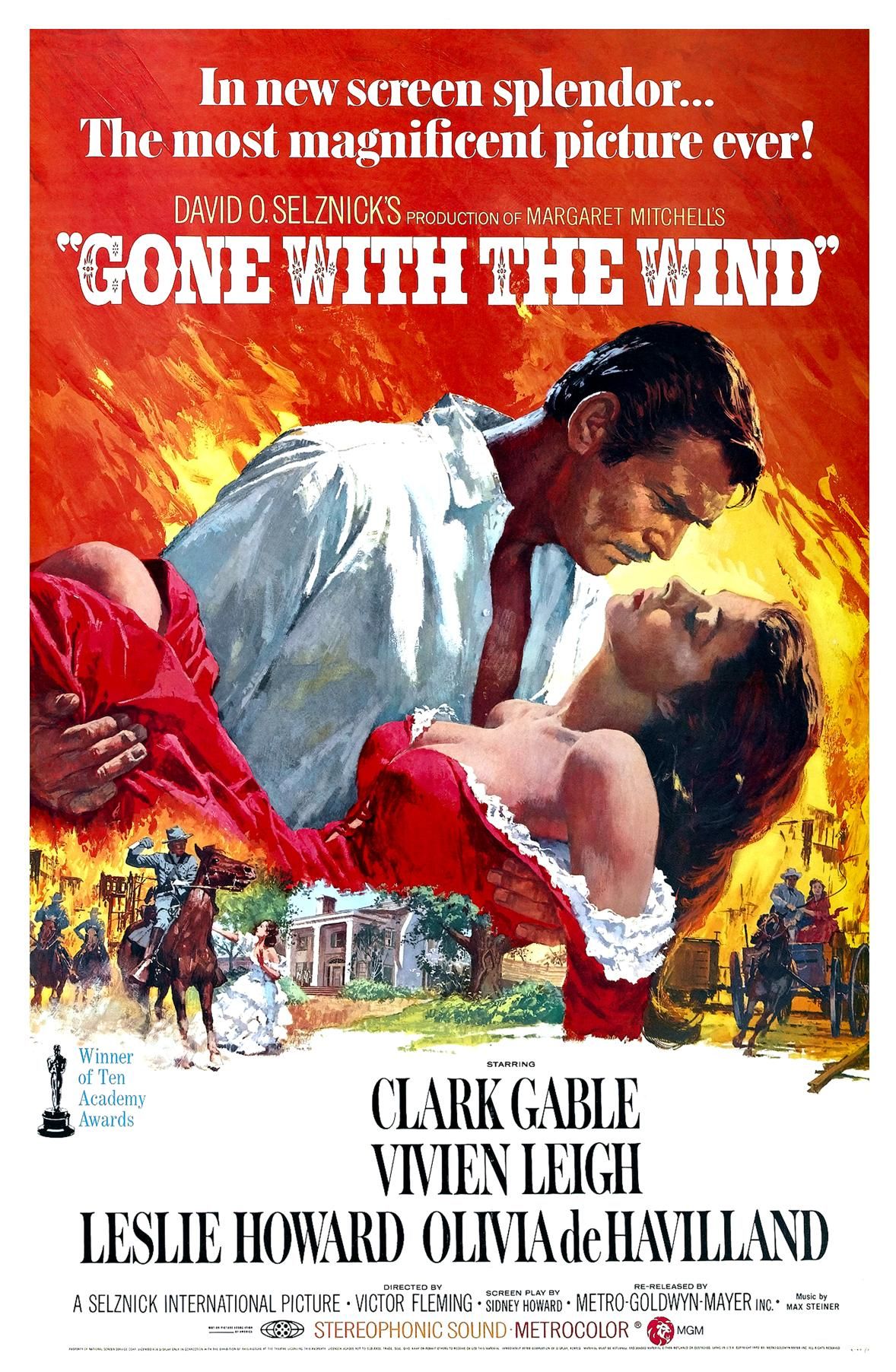
Gone With the Wind
- Release Date
- December 15, 1939
- Cast
- Thomas Mitchell , Barbara O'Neil , Vivien Leigh , Evelyn Keyes , Ann Rutherford , George Reeves , Hattie McDaniel
- Runtime
- 238 minutes
1 'Rebecca' (1940)
Director: Alfred Hitchcock
Rebecca is the only Hitchcock movie to win the Oscar for Best Picture. The iconic Laurence Olivier stars opposite Joan Fontaine, with the plot following a newly married couple haunted by the memory of the husband's deceased first wife.
Selznick's back-to-back Oscar wins for Gone with the Wind and Rebecca cemented his legacy as a titan in the production industry. The film might not be the best in Hitchcock's filmography, but it is an enthralling Gothic romance that showcases the director's greatest strengths. Selznick's keen producing instincts shined in this production; at his insistence, the film loyally adapts the novel, although Hitchcock made some minor changes. This unique blend of styles and approaches allowed for an immersive and brilliant psychological thriller that only improves with age.

